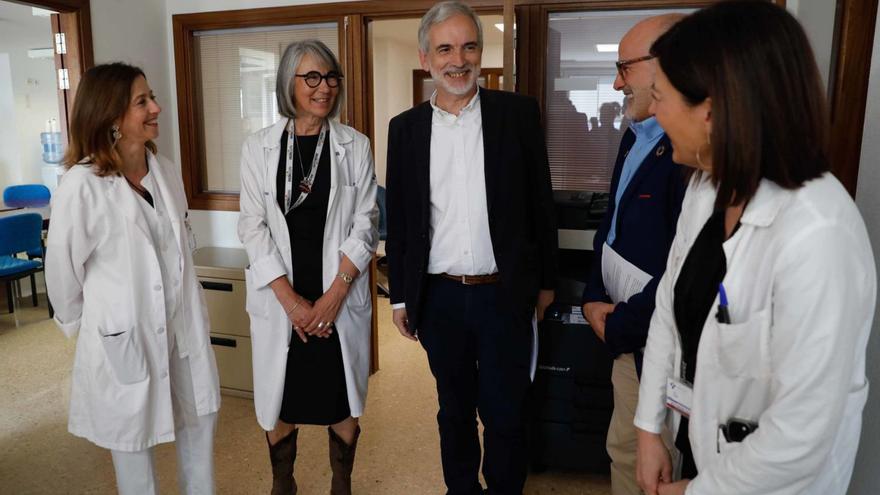Aviles, a pioneer municipality in the region in the early detection of lung cancer

Lung cancer is the third cause of death among men and the fourth among women. Therefore, the task is twofold: smoking cessation and early detection of the disease. Health Region III, headquartered in Aviles, was selected to participate in the first national pilot project for lung cancer screening. The study, which will begin before the summer, aims to evaluate the effectiveness of an imaging test, particularly a low-dose radiation scanner, in early detection of the disease in long-term and former smokers, which would help reduce mortality.
The head of the Health Service (Sespa) Aquilino Alonso and the head of the health department Miguel Rodriguez presented the Cassandra project (cancer screening, smoking cessation and respiratory disease assessment) at the University Hospital of San Agustin (HUSA), which consists of selected patients with a unique opportunity for training, prevention and quitting bad habits. Also participating in the visit were HUSA Director Maria Luz Maniega, Director of Care Management and Health Nursing Arantza Muñoz, and Director of Health and Public Health Ruth Palacio.
It is a scientifically led outreach program dedicated to the diagnosis, treatment and research of lung cancer in collaboration with patient associations. Cassandra consists of several lines of action, including integrating smoking cessation into screening, performing functional respiratory tests, and using the information provided by low-dose computed tomography (LDCT) to complete a global assessment of the smoker. or a former smoker.
Patient selection
The pilot program is intended for asymptomatic people aged 50 to 75 years who meet the inclusion criteria: smokers or former smokers who have been abstinent for more than 15 years and who consume or have consumed at least 20 packs of cigarettes per year. In addition, participants must remain respiratory stable, without symptoms associated with the presence of lung cancer, and their situation must allow for diagnostic or therapeutic tests, including lung resection.
Health manager Miguel Rodriguez explained that, based on the experience of other centers participating in other autonomous communities, “the enrollment of patients is not excessively large, since in addition to the inclusion criteria there are also reasons for exclusion, “for example, that they do not have a pathology, that they do not had too many surgeries that they didn’t have another type of cancer. if there is a worsening of a normal cough, new hoarseness, hemoptysis, or unexplained weight loss. So it will be a progressive and moderate record, but we will lock in everyone who qualifies for five years.”
Recruitment of patients in the health area will be carried out in primary health care or in specialized consultations. Volunteers will initially be assessed using an epidemiological questionnaire, smoking cessation counseling and, in the case of active smokers, low-dose computed tomography and spirometry. This research will determine whether it will be included in Cassandra.
Aquilino Alonso explained that the curator will be responsible for guiding the people involved in the project, and follow-up will be carried out in pulmonology. The duration of the screening program will be five years with follow-up of all patients included in it. Epidemiological monitoring will last 10 years. In parallel, a national registry will be created with epidemiological data and screening results, as well as a web-based image bank that provides scientific evidence for decisions about the integration of lung cancer screening into the NHS portfolio.